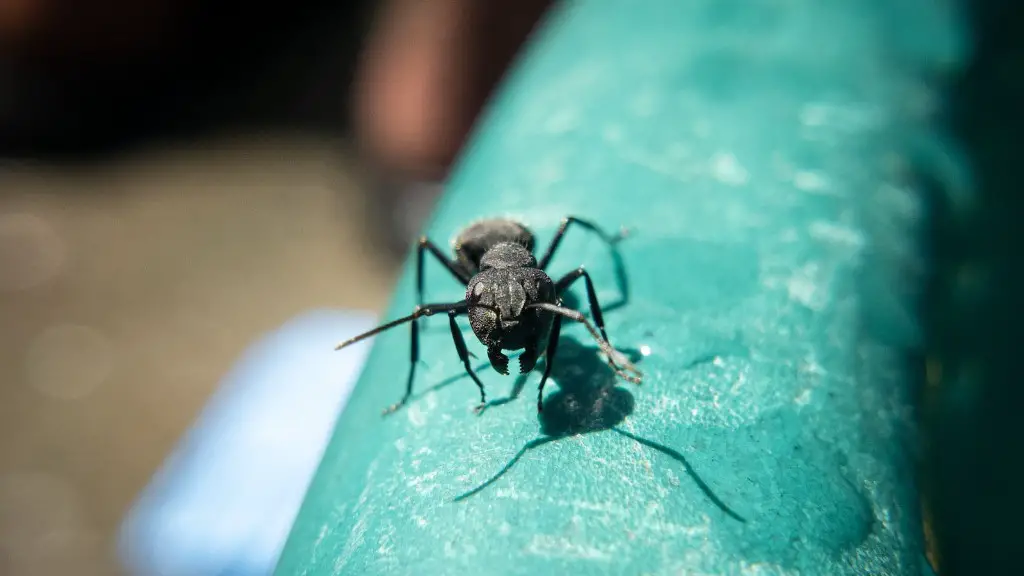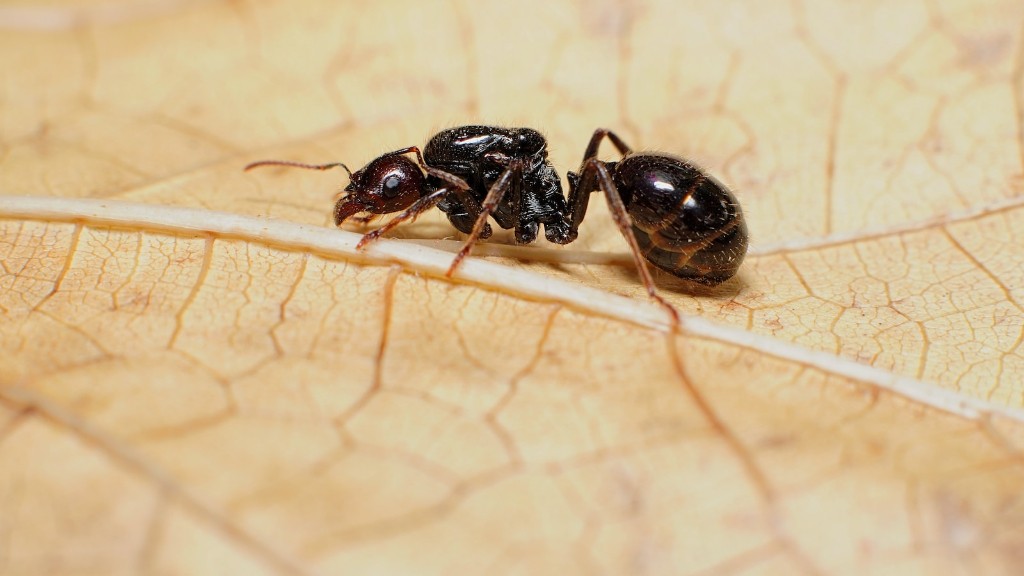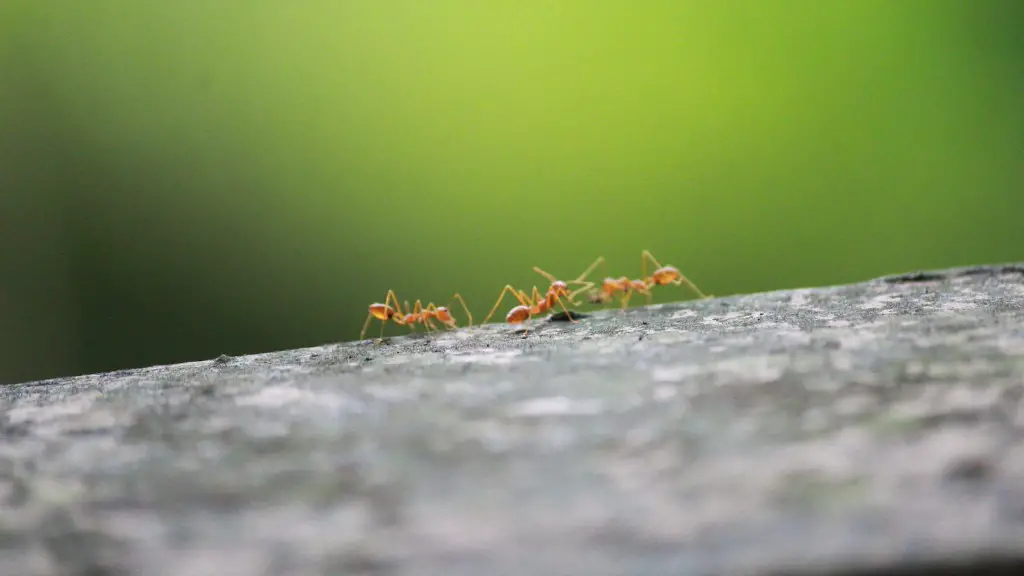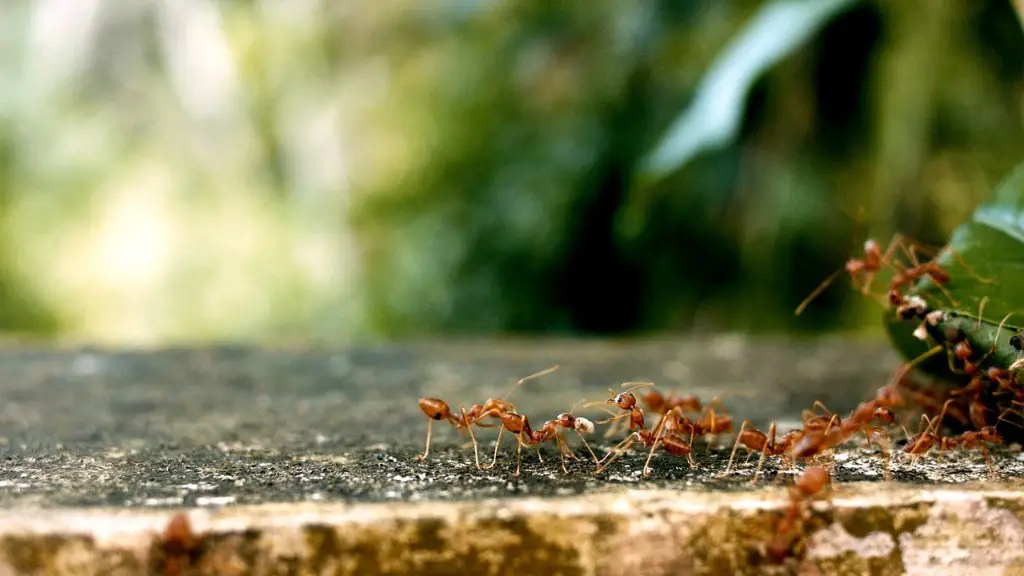Introduction
Venus flytraps are some of the most popular carnivorous plants in the world. They have long been admired for their fascinating ability to catch and digest living prey. And one of their favorite snacks is said to be ants. But do Venus flytraps actually eat ants, or is this just an old wives’ tale? In this article, we’ll take a closer look at the fascinating eating habits of Venus flytraps, and discover if these mysterios plants have an appetite for ants.
Biology and Feeding Habits
At first glance, Venus flytraps may look like typical green, leafy plants. But beneath their deceptively ordinary exterior lies an incredible ability to capture and digest living prey. Inside the plant’s hinged, green leaves are small, sensitive hairs known as trigger hairs. When an insect or other small creature crawls across these hairs, the leaves will snap shut, trapping the unsuspecting victim.
Once inside the leaf, the prey will be slowly digested over several days. The Venus flytrap is able to do this thanks to special enzymes that break down proteins and cell walls.
As for ants, it’s widely believed that Venus flytraps do eat them, especially in the wild. Ants are small, plentiful, and they’re rich in nutrients that aid in the growth and health of the flytrap.
Environmental Conditions
Though Venus flytraps can eat a variety of small prey, they’re not likely to do so unless they’re in their natural environment. In the wild, Venus flytraps can be found in nutrient-poor soil and sunny, wet terrain. This environment is ideal for Venus flytraps since it meets their needs for moisture, light, and food.
However, in captivity, these plants need to be provided with the necessary conditions to thrive: sufficient light, moisture, and nutrients. Without the right environment, the plant may not be able to digest its prey, and may simply discard it after trapping it.
Do Venue Flytraps Prefer Ants?
Though Venus flytraps may eat ants in their natural environment, these plants are actually quite choosy about the meals they choose. In the wild, Venus flytraps prefer to eat bigger prey, such as spiders, worms, and small frogs. Ants, while nutritious, are relatively low in body mass and therefore provide less nutrition than larger prey.
That said, some sources suggest that captive Venus flytraps may prefer to eat ants, since they are easier to catch and digest. A study published in Oecologia found that Venus flytraps in captive settings were more likely to eat ants than smaller prey such as fruit flies and aphids.
It’s important to note, however, that ants are not essential for a Venus flytrap’s diet. In fact, providing too many ants could actually be dangerous for the plant, since it may cause it to become “addicted” to ants and therefore be unable to digest other foods.
Are Ants Healthy For Venue Flytraps?
Despite their small size, ants actually provide a great source of nutrition for Venus flytraps. In addition to protein, ants contain vital vitamins, minerals, and micronutrients that can help the plant thrive.
But while ants can be beneficial, they’re also full of defensive chemicals—which could actually be harmful to the flytrap. Ants produce formic acid, a chemical that can make it difficult for the plant to digest its prey. Too little formic acid is bad for the flytrap, but too much can be worse.
Conclusion
In conclusion, it appears that Venus flytraps do enjoy a meal of ants from time to time. Though ants may not be as nutritious as larger prey, they can provide a useful source of protein and vitamins. However, it’s also important to remember that too many ants can be damaging to a Venus flytrap, as they contain large amounts of formic acid that could interfere with digestion.
Food Source
Venus flytraps are true carnivores, and they get their nutrition from consuming the tissues of other organisms. Unlike herbivorous plants, which get their energy from the sun, carnivorous plants rely on getting their energy from the food they eat.
Though Venus flytraps may prefer larger prey such as spiders, worms, and small frogs, they’ll also eat smaller creatures such as insects and ants if they’re available. But because of the small size of ants, they may not always provide the same nutrition as larger prey.
The best way to ensure a Venus flytrap is getting enough nutrition is to provide a variety of food sources. As well as providing ants, a Venus flytrap owner should also provide larger prey and a range of insects. This ensures that the plant is getting a balanced diet, with all the vitamins and minerals it needs to stay healthy.
Insects in the Wild
Though ants are an important source of nutrition for Venus flytraps, in the wild their diets are comprised of much more than just ants. In addition to ants, Venus flytraps found in the wild also eat a variety of other insects, such as fruit flies and aphids.
These insects provide valuable proteins and nutrients that help the plant to thrive. Ants may provide some of these nutrients, but they’re often not enough. It’s therefore important to provide a variety of food sources if you want your Venus flytrap to stay healthy.
Artificial Insects
While providing a variety of insects is important, it isn’t always practical or possible. If it’s not possible to provide natural sources of food such as ants and other insects, then it may be necessary to supply artificial sources.
Artificial sources of food for Venus flytraps include freeze-dried insects as well as specially formulated insect supplements. These products can provide the plant with the protein and vitamins it needs without the risk of damaging formic acid.
Feeding Tips for Venus Flytraps
Feeding Venus flytraps can be a tricky task, as it requires finding the right balance of nutrients and prey. Here are some tips to help you ensure your Venus flytrap is getting all the nutrition it needs:
• Provide a variety of food sources – As well as ants, provide Venus flytraps with a variety of larger prey and insects
• Feed only a few times a week – Feeding too frequently can overload the plant with nutrients and make it unhealthy
• Avoid overfeeding – Providing too much food can be damaging to the plant. Make sure to provide only the amount of food that can be consumed in one sitting
• Make use of artificial sources of food – If it’s not possible to provide natural sources of food, then make use of freeze-dried insects and insect supplements.
Following these tips can help ensure that your Venus flytrap is getting all of the nutrients it needs.
Caring for a Venus Flytrap
Venus flytraps are not just fascinating to observe when hunting prey, they’re also relatively easy to care for. Though they need to be provided with the right environment and nutrients, they don’t require a great deal of effort.
To care for a Venus flytrap, it’s important to provide it with the right amount of sun and moisture. Venus flytraps in the wild get their nutrition from their environment, so to give your plant the nutrition it needs, it’s important to make sure it’s in the right conditions.
It’s also important to make sure that the Venus flytrap is not being overfed. Even though ants can be a good source of nutrition, it’s important to remember that too many can be damaging to the plant. Instead, provide the plant with a variety of food sources that can provide adequate nutrition without the risk of overfeeding.
Finally, if it isn’t feasible to provide natural sources of food, then make use of artificial sources such as freeze-dried insects and insect supplements.
Conclusion
In summary, Venus flytraps do eat ants, though they’re not likely to do so if they’re not in their natural habitat. They may prefer larger prey and may benefit from a variety of insects, but ants can still provide a useful source of nutrition that can help the plant to grow and stay healthy. It’s important to remember, though, not to overfeed the plant, and to make use of both natural and artificial sources of food. With the right care, your Venus flytrap can grow healthy and strong for many years to come.



